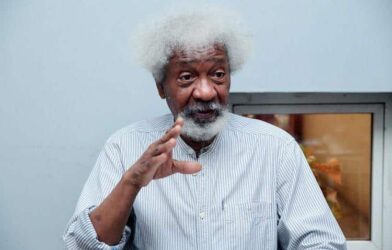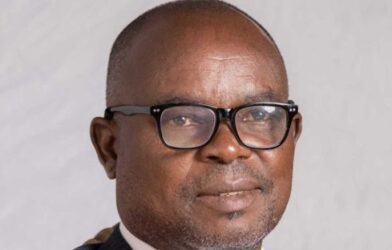279
Prominent activists group-HUMAN RIGHTS WRITERS ASSOCIATION OF NIGERIA(HURIWA) has called on the Economic and Financial Crimes Commission (EFCC) and the Independent Corrupt Practices and other offences Commission (ICPC) to initiate the process of inviting for interrogation and possible prosecution over alleged misappropriation of public funds running into billions of Naira made against the Chief Judge of the FCT High Court- Husseini Baba-Yusuf.
The foremost Rights group asserted that it is not indeed the best of time for the High Court of the Federal Capital Territory—FCT following allegations of corruption and personnel grievances against Chief Justice Husseini Baba-Yusuf made anonymously by ranking judges of the same Court.
HURIWA said the fact that several judges have disclosed to a well known investigative online medium about the agonizing experiences they endure under the leadership of Justice Husseini Baba-Yusuf, should propel suo moto the immediate, transparent and clinical forensic investigations of the finances of the FCT High Court.
HURIWA has also called on the Chief Judge of FCT to provide incontrovertible evidence publicly to counter these allegations against him which is a moral burden on the court system in Nigeria going by the visible position of the FCT High Court in the Country.
HURIWA learnt that during discreet interviews conducted over a span of seven weeks, five judges from the court expressed deep concerns about the mismanagement of resources within their division, which has left judicial officers struggling in the midst of widespread hardship exacerbated by President Bola Tinubu’s decision to eliminate petrol subsidies in an attempt to prevent a broader economic crisis.
These judges further accused Mr. Baba-Yusuf of exploiting their meager allowances, resulting in their courtrooms lacking essential support personnel and equipment. They described the Chief Justice’s management style as akin to treating the court as his personal estate, and they felt generally disregarded and disrespected, likening their treatment to that of “secondary school boys.”
Accounts gathered by this online newspaper showed that the judges are alarmed that this neglect could increase their vulnerability to bribery, even though they vehemently asserted their commitment to upholding justice and their willingness to resign rather than compromise their principles. Since 2007 when President Umar Yar’Adua raised the salaries of FCT judges from N200,000 to N530,000 monthly (roughly $600), no reviews have been conducted, much less approved, they said.
HURIWA in a press statement by the National Coordinator Comrade Emmanuel Onwubiko affirmed that these revelations are strong enough to constitute a subject of investigation by the National Judicial Council just as the Rights group has called on the anti-graft bodies to conduct their discreet investigation and send their findings to the National judicial Council so the constitutional body charged with administrative discipline of members of the judicial arm of government can look at the merits of the allegations, suspend the FCT High Court head and then ask the EFCC or ICPC to take over and play their statutory role of prosecution if the Chief Judge is indicted of these damaging allegations which will inevitably bring public disrepute for the entire judicial arm of Nigeria.
HURIWA similarly, has openly encouraged these senior judges with evidence of financial malpractices against the FCT High Court’s head to send to the organisation (HURIWA) copies of these documents so the body can on its own approach the relevant law enforcement authorities since most times the EFCC and ICPC wouldn’t take steps on their own to arrest such high profile persons unless they are served with written petitions by individuals or organisations.
HURIWA calls on the Chief justice of Nigeria who is the Chairman of the National Judicial Council to implement measures to dissuade heads of courts across the Country from committing criminal acts which have continued to stain the public standing of the judiciary just as the Rights group regretted that the Nigerian Court system has become more notorious in terms of bribery and corruption much more than the Nigerian police force that has held that infamous position for decades.











Comments are closed